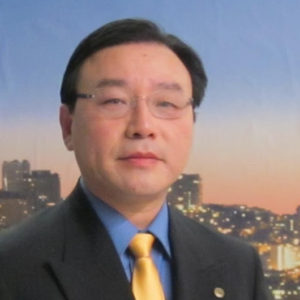Jeff Wang, Candidate for New Haven School Board
 Jeff Wang is a business owner.
Jeff Wang is a business owner.
1. What are the biggest challenges facing your School District and how will you tackle them?
The largest challenges facing New Haven Unified School District are the graduation rate, and the ratio of students attending 4-year institutions. The overall graduation rate is not too bad, but there is a noticeable 13% gap in graduation rate between the highest and lowest achieving ethnicity. It is important to provide students with the resources necessary to graduate, and thus it is important to close this gap. Also, the ratio of students attending 4-year institutions is still relatively low, and in order to strengthen this school district, it is necessary to increase the ratio of students attending 4-year institutions, and hence making our district more competitive.
2. Do you believe there are systemic problems with racial/sexual/gender-based or other discrimination in your district’s schools? How would you tackle them?
There are no major systemic discrimination problems, but racial/sexual/gender-based discrimination cases still occur. In order to tackle them, it is important to increase awareness of inequalities that exist in our society and educate community members how best to respond, and help those who are being unfairly treated. We need to provide aid and assistance to those who have suffered discrimination and abuse, and ensure that discrimination cases are limited in our schools.
3. Do you believe the school-to-prison pipeline is operational in your School District and what will you do to close it down?
There is still some small form of a pipeline in our School District due to Zero-Tolerance policies. It is important to understand that many of these juveniles who commit these felonies are simply still not mature and can change. Minor felonies such as drug possession can be remediated through education programs and counseling. Sending these students to prison does not allow them a change to reflect on their errors and integrate back into society as a productive citizen. Thus, supporting drug education programs and counseling, and other programs of the like are important to help keep students who commit felonies in school and not jail. But for actual crimes, it would be difficult to keep them out of jail simply through education and counseling.
4. Do you support having police officers on campus? If so, in what capacity?
No, while it is important to maintain a safe campus, having campus monitors rather than police officers will make students feel less cautious while still realizing that they are being monitored for their actions. The police department can be on call in case there are incidents that escalate to a point in which it is necessary for police intervention.
5. What limits to students’ freedom of expression and privacy do you think are appropriate for public schools?
It is important to ensure the safety of our students as first priority, hate speech and hate crimes are absolutely not allowed for public schools because they make individuals feel threatened and attacked. We welcome all thoughts and ideas, but not when they are used to attack another individual or group of people. We need to have certain limitations on freedom of expression to ensure no violence and hate exist.
6. What do you think the School District should do to offer support to homeless, foster and impoverished children and children coming from violent homes?
We should allow students to feel safe to talk about their issues to their counselors or teachers and reach out for help. We want students to have somewhere where they can feel safe after they leave school, and especially for students coming from violent homes, we need to educate school faculty to recognize when students may be suffering from issues such as homelessness, poverty, or abuse, and help them find someone in which they are able to confide to. We want to keep whatever they tell us private, yet offer them assistance in any way we can. Our school district is there to make sure all of our students succeed, and we are willing to help them in any circumstance.
7. Given the explosion of autism diagnoses, what is your plan to make sure children and their parents are getting the proper support?
Autism is a difficult disease to cure, so there is no short-term treatment for autistic students to treat autism. However, it is crucial to provide these students and their families with as much support as we can. It is important to have specialized staff members to educate these students and help guide them through their education. The community needs to become more aware that autism exists and is nothing to be ashamed of. Autistic children and their families go through more difficulty than the average individual, so providing them with more resources by having more attention in the classroom as well as providing parents with an extra hand can go a long way.
8. What should the District do to tackle problems of truancy?
Truancy is a problem in many school districts, and ours is not an exception. If we can provide a more welcoming and comfortable environment from their teachers and faculty, students will be more willing to come to school instead of being truant. Now of course, this is not the only reason why students are truant. In other cases, it is important to have more support and education for these students to feel comfortable to discuss what issues they may have. Our goal is to encourage learning, and we want to do what we can to help students not be truant. We want them to succeed, and we want to remove any barriers they may have. Learning becomes second nature when students feel comfortable, so we will continue to support our students, rather than criticize them.
9. Are you running as a Berniecrat?
No I am not.
